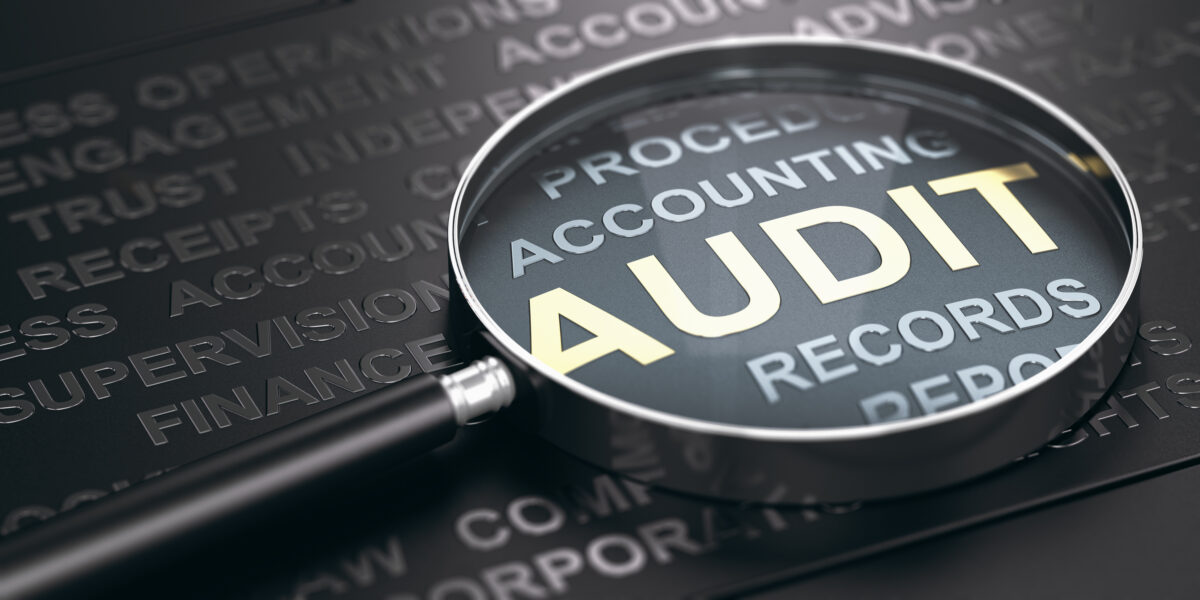4 Reasons You Might Be Audited By The IRS
by Gabriel Lewit

If there’s anyone whose attention you never want to get, it’s the IRS. And if you’ve ever asked yourself when preparing or filing taxes, “why might I get audited by the IRS?,” we have a few simple answers for you.
This may be news to you: the Internal Revenue Service has a precise computer process for determining which businesses and individuals it will audit, called the Discriminant Function System (DIF). Although the details are unknown, we are aware that the DIF assigns a point value based on your tax return information. As your score goes up, so does the likelihood you’ll be flagged for an audit.
Put all fears aside: with taxes done accurately, an IRS audit can be avoided. These government reviews of your federal tax return and financial information are to ensure you’re paying what’s due.
This means that as long as you are not intentionally cheating the system and filing timely, honest tax returns, your annual submission is unlikely to raise red flags with an IRS agent.
So let’s explore four potential audit triggering events.
1. Mistakes
You cannot afford them, literally. Even the slightest error – transposing two numbers, forgetting a zero, leaving a field blank, or putting a decimal in the wrong place – can make it seem like you’re trying to pull a fast one. And as the IRS does not care whether your mistake was accidental or intentional, they will almost definitely take a closer look at your return if you make one. If they find anything else—Audit.
Tip: Be extremely careful and check your work, or better yet, leave it to a tax pro.
2. Extreme Income, High or Low
The IRS says that most audits they conduct are on very high-wage earners ($500,000 or more). The more money you make, the more your odds of being audited increase accordingly. Rumor has it there is a specialized department within the IRS whose focus is on closely examining the tax returns of the super-rich.
Conversely, the IRS may also come knocking if you report too little income. They use a data-matching process, and their systems are up to date on current salary averages, so if your tax return shows less income than the average based on your profession and location, you can expect the IRS to ask questions.
Finally, the IRS may plant another red flag on your return if you report significant changes in income that are not explained by your W-2 or 1099 forms.
Tip: Report accurately with supportive documentation.
3. Not Reporting All Income
In this current age of the “side hustle,” it’s tempting to omit certain income, especially if the earnings were in cash.
The IRS very likely already knows about that income if you are employed as an independent contractor and the person or company you did work for filed a Form 1099 on your behalf. Freelancers, ride-share drivers, vacation-home hosts, and personal shoppers are just some of the “gig-economy” workers who may receive a 1099.
You may also have to file a 1099 if you earned over a certain amount of interest from a bank account or cash dividends from stocks. As we mentioned concerning reporting too little income, the IRS does know when you’re not being honest about how much you made last year.
Tip: Report all income, honestly.
4. Claiming Certain Deductions
Tax credits and deductions exist for a reason. They reduce the amount of taxes you owe and your taxable income, respectively. When you take tax deductions, the IRS subtracts the amount of your deductions from your gross income and taxes you only on the net amount.
Suppose you contributed to charity, made significant purchases for your business, had a designated workspace in your home, paid large amounts in medical or dental expenses, to name a few. In that case, you may be able to claim tax deductions for those. However, the omniscient IRS has a general idea of what amounts are realistic and expected for those deductions.
If you borrowed $100,000 for your home and are claiming $12,000 in annual mortgage interest deductions, the IRS is probably going to wonder why and request an audit.
Within this category, certain deductions may trigger an audit even if your numbers are reasonable and legitimate. Many people take advantage of home-office deductions, many of whom have no right to do so, and this abuse has caused the IRS to scrutinize returns that claim them. As long as you have a space in your home that is designated expressly for working, and it’s reasonable for a person in your profession to work from a home office, you should be fine.
Tip: Maintain supporting documentation such as receipts for equipment, bills, or invoices for phone and Internet service; bonus points if you’ve taken the home office deduction in previous years.
Random Audits
The IRS still conducts random audits, and there’s not much you can do to avoid winning that unlucky lottery ticket. But most audits are triggered by reasons like the ones we’ve addressed.
So even if you do get audited, as long as you file accurate, honest returns and pay what you owe, you shouldn’t be too concerned.
Next Steps
Of the many benefits of hiring a CPA to prepare your tax return, you deserve to know it’s been done accurately. It’s comforting to know that the Internal Revenue Service does not have you under the magnifying glass. To avoid these most common tax mistakes that can increase your chances of an audit, get ahead with tax planning sooner than later.
Contact our team to discuss your concerns about tax laws, tax audits, charitable donations and beyond.
